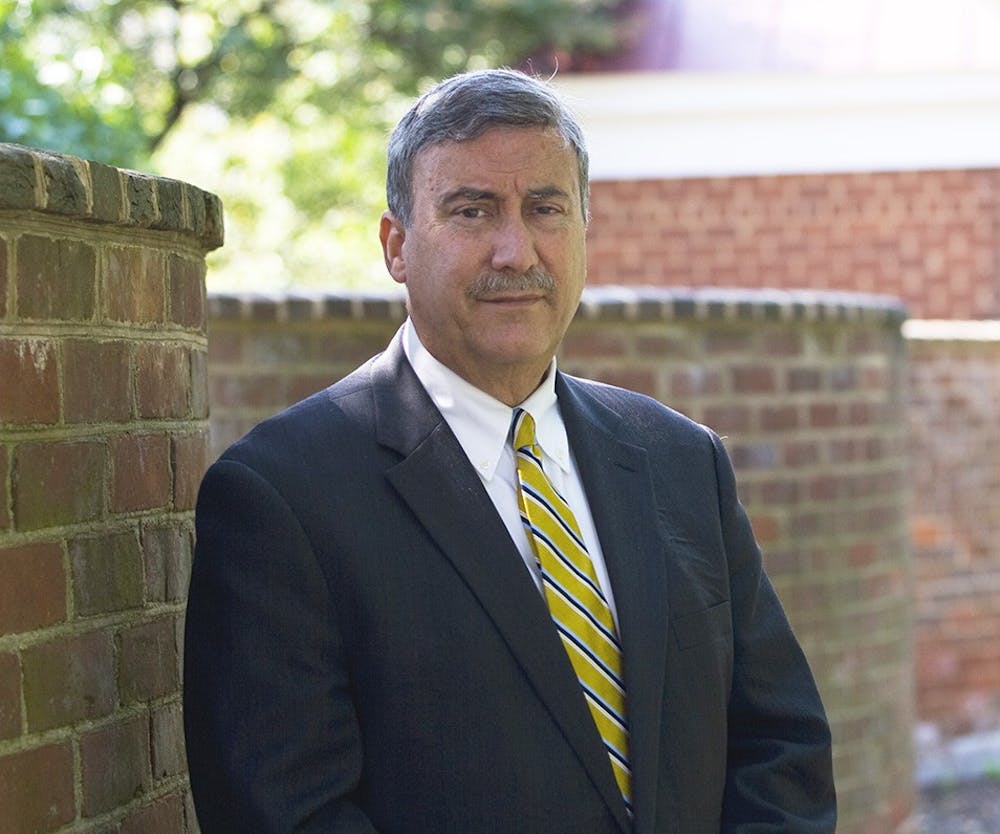As the 2016 elections approach, Sabato’s Crystal Ball is starting to predict the winners of state and federal elections.
Sabato’s Crystal Ball — named after Prof. Larry J. Sabato, who is the director of the Center for Politics — is an online predictive tool which features detailed and updated analyses of current elections taking place across the nation.
Associate Editor of Sabato’s Crystal Ball Geoffrey Skelley said the Crystal Ball is intended to reach a wide reader audience, from vaguely interested citizens to close followers of American politics.
“We use it as a tool to try to get people interested in politics,” Skelley said. “It’s a route to get them more interested in political issues with more substance using elections. Everybody likes a horse race.”
Since its inception in 2004, the Crystal Ball has been remarkably accurate in its political predictions, even receiving a 100 percent accuracy rating in 2008 for its predictions of gubernatorial and Senate races across America.
In 2013, the Crystal Ball was awarded the “Best Beast” accolade by The Daily Beast for being one of the best political sites on the Internet.
Yet in the recent Iowa caucuses, Republican presidential candidate Ted Cruz defied the Crystal Ball’s prediction by beating Donald Trump.
At this point in the primary elections, it is notoriously difficult to accurately determine what is likely to happen state to state, Skelley said, which is why contributors to the Crystal Ball were hesitant to confidently label strong leaders before the Iowa caucuses took place.
The Crystal Ball prediction said Trump and Clinton were “modest favorites” to be the respective Republican and Democratic winners of the Iowa caucuses.
“I think essentially we offered analysis on who we thought were slight favorites, but we were hesitant to label the race as anything concrete,” Skelley said. “It’s hard to do in this context.”
Certain characteristics of the 2016 presidential race also make predictions particularly difficult this year, Skelley said.
“Donald Trump throws a wrench into things,” Skelley said. “He’s obviously atypical. He doesn't fall as neatly into a typical breakdown of polls, of groups or coalitions.”
In addition to the presidential election, the Crystal Ball offers ratings, which range in predictive strength from “strong” to “toss up” for the 2016 U.S. Senate, U.S. House and gubernatorial elections.
Emily Bolton, communications director for the Democratic Party of Virginia, said predictive tools like the Crystal Ball are useful for their nonpartisan perspective on elections, as well as their use as a reference tool for the political community.
“[Predictive tools] are useful in the sense that they break down political actions in a nonbiased way that cuts through all of the campaign noise,” Bolton said. “Simple media coverage doesn’t do that.”
Although predictive tools like the Crystal Ball are useful for such reasons, they are not often used in an official campaign capacity, Bolton said.
Although Skelley said predictions are difficult to make at this time, he offered a hesitant prediction for the primary election in Virginia, which will take place on the first of March.
“I’d be inclined to think that Clinton will win Virginia, but on the Republican side we might still have four or five — even six — candidates and that really makes it difficult to say,” Skelley said.
Bolton also said it is too soon to make accurate predictions regarding upcoming primary elections in other states, although she said she is hopeful about building national momentum in the Democratic Party.
“We don’t really have any predictions at this point as far as the primary goes,” Bolton said. “What I can say is we are very encouraged by the turnout in Iowa.”
The Republican Party of Virginia could not be reached for comment.







